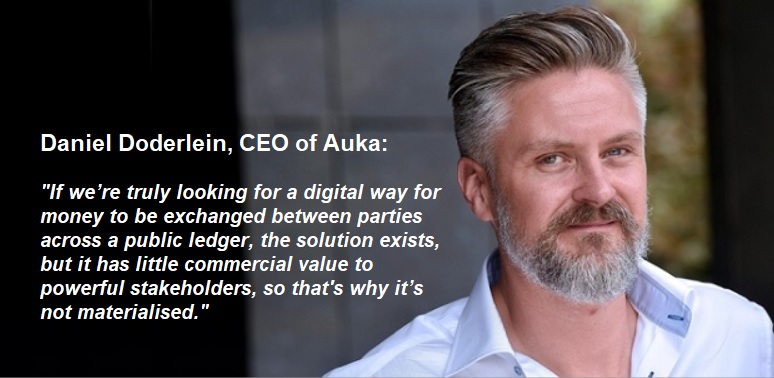
an article written by Daniel Döderlein
Hot off the heels of their impending IPO announcement, Ant Group has launched AntChain – a new technology brand for the group’s blockchain-based solutions.
I’m going to say it again: enough of the chains already.
If there is to be one currency which can be used by anyone, regardless of borders, why can’t the World Bank or someone with magnitude create a public ledger? They could peg the globally available world coin (yes, I just made that up, but I’m sure a google search will show there is already someone who has made millions on an initial coin offering with the same name) to some calculated average between the euro and the dollar and allow financial institutions to exchange it to “world coins”. They could do this on behalf of anyone who wants to. Each coin would then be a digital sibling of whatever fiat currency it was bought with.
There’d be no “new” money or mined coins. Therefore, the only volatility would be the traditional currency exchange flux between the world’s two most used fiat currencies.
This solution I predict would result in a stable, government-regulated but publicly available digital currency. It would open up the benefits of digital money to all rather than a few. Right now there is a small group of speculative money-making crypto evangelists who primarily get rich robbing the average person of their savings.
I might be naive and I’m open to hearing otherwise but I honestly believe it’s that simple. If we’re truly looking for a digital way for money to be exchanged between parties across a public ledger, the solution exists, but it has little commercial value to powerful stakeholders, so that’s why it’s not materialised.
There’s no need for mining or strange, inaccessible crypto. Just like access to most people’s money is protected by a username, password and perhaps a token generator or the equivalent, a global digital currency could be equally (and likely better) protected as it lives on the ledger.
The protection of monetary value management is done by thousands of financial institutions. These thousands of financial institutions are, for now, costly middlemen.
Before the internet, we used phone lines to ‘wire’ promises of money. Before that we used the Wells Fargo carriages to actually move money. Before that we had to carry the bread we would exchange for eggs (and so on) at the market. Now, the two storage points of value are connected, my bank with yours.
With a new “world coin” there’s no need for the physical part of money anymore. As a consequence, the need for banks becomes redundant also. At least the bank doesn’t need to exist for the purposes of exchange or storage of value. It can move from me to you. Or in fact, it doesn’t move at all. The ownership of the funds change. The value stays where it was originally parked.
In this brave new world, the only actual need we would have for banks is to provide credit. To make that work, they need the surplus funds from someone to lend out to others. So, for now, “world coin” lending and therefore, mass popularity, is unlikely. That is, until we’re able to have a rock solid digital ID for every person and for value exchange to be free and thus provided or facilitated as a commodity by our governments and not for profit.
About the author
With more than 20 years of entrepreneurial experience, top 200 European fintech influencer Daniel Döderlein is the CEO and founder of award-winning mobile payments company, Auka. Sitting on the Google cloud advisory board, Daniel was the first to develop mobile payments technology in Scandinavia, the first to launch a mobile payment service in Norway (mCASH) and the first to create and run a regulated financial services platform on the public cloud. After Norway’s second largest bank, Sparebank, acquired mCash for exclusive use in Norway, Daniel started Auka, which in turn has just announced Settle – mobile payments for Europe.
Banking 4.0 – „how was the experience for you”
„To be honest I think that Sinaia, your conference, is much better then Davos.”
Many more interesting quotes in the video below: